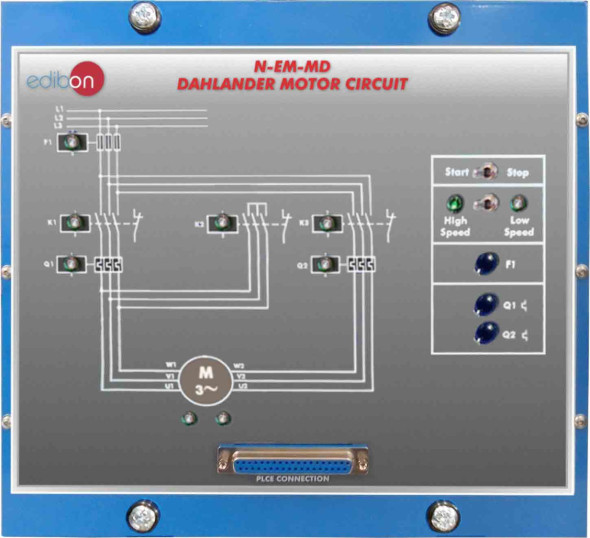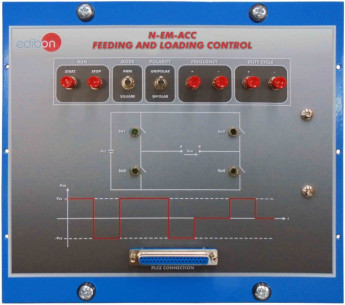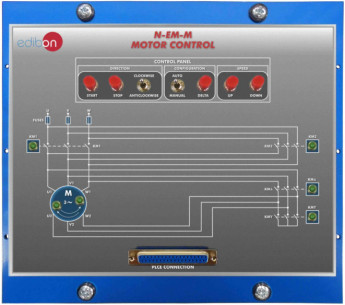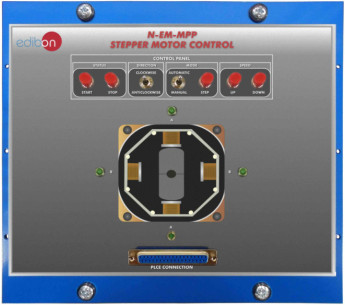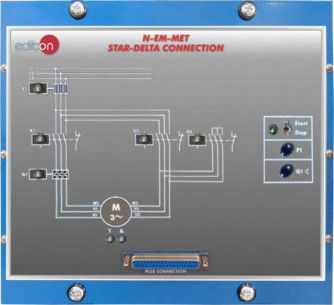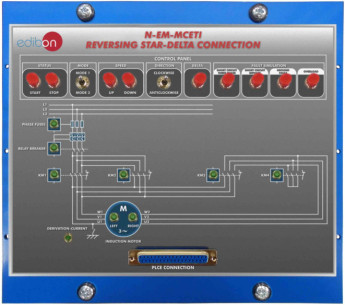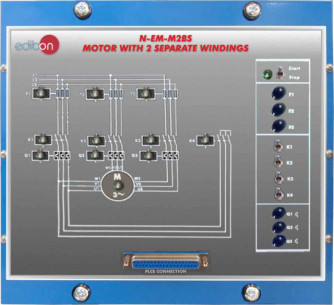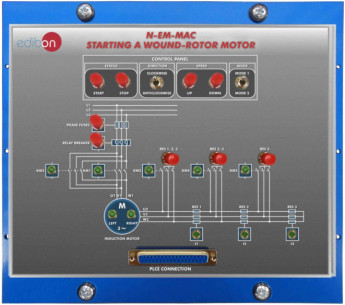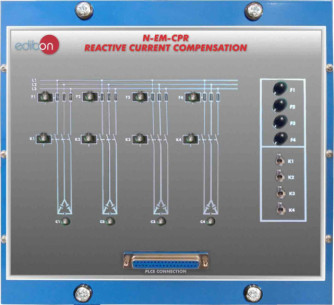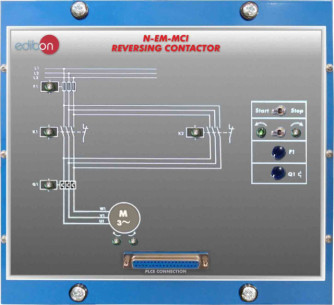At EDIBON, we are committed to strengthening skills as a strategic pillar for the competitiveness and social well-being of the European Union. Proper training not only boosts the economy but also enables individuals to fully participate in society and democracy.
N-EM-MD Dahlander Motor Circuit
INNOVATIVE SYSTEMS
"N-EM-MD" represents a Dahlander motor circuit which has two connection configuration for connect 2 and 4 poles and emulates the motor’s movement.
RELATED NEWS
General Description
The "N-EM" are a series of emulators that provide the students the required hardware to emulate the most common automatic systems.
The "N-EM" modules are designed to work with the "AE-PLC" units to obtain the fundamental knowledge of PLC programing, PLC management, etc.
"N-EM-MD" represents a Dahlander motor circuit which has two connection configuration for connect 2 and 4 poles and emulates the motor’s movement. The system also allows to use the different switches to emulate faults in the three phase fuses and magnetothermics.
Exercises and guided practices
GUIDED PRACTICAL EXERCISES INCLUDED IN THE MANUAL
All "N-EM" modules allow to perform the following practical exercises:
- Temporization.
- Counting.
- Sequential counting.
- All the practical exercises include the diagrams and the flow charts of the example programs used.
SUPPLEMENTARY EQUIPMENT
6.2.2.4.- ELECTRICAL MACHINES CONTROL
N-EM-ACC
The "N-EM" are a series of emulators that provide the students the required hardware to emulate the most common automatic systems.The "N-EM" modules are designed to work with the "AE-PLC" units to obtain the fundamental knowledge of PLC...
6.2.2.4.- ELECTRICAL MACHINES CONTROL
N-EM-M
Motor Control
The "N-EM" are a series of emulators that provide the students the required hardware to emulate the most common automatic systems.The "N-EM" modules are designed to work with the "AE-PLC" units to obtain the fundamental knowledge of PLC...
6.2.2.4.- ELECTRICAL MACHINES CONTROL
N-EM-MPP
Stepper Motor Control
The "N-EM" are a series of emulators that provide the students the required hardware to emulate the most common automatic systems.The "N-EM" modules are designed to work with the "AE-PLC" units to obtain the fundamental knowledge of PLC...
6.2.2.4.- ELECTRICAL MACHINES CONTROL
N-EM-MET
Star-Delta Connection
The "N-EM" are a series of emulators that provide the students the required hardware to emulate the most common automatic systems.The "N-EM" modules are designed to work with the "AE-PLC" units to obtain the fundamental knowledge of PLC...
6.2.2.4.- ELECTRICAL MACHINES CONTROL
N-EM-MCETI
Reversing Star-Delta Connection
The "N-EM" are a series of emulators that provide the students the required hardware to emulate the most common automatic systems.The "N-EM" modules are designed to work with the "AE-PLC" units to obtain the fundamental knowledge of PLC...
6.2.2.4.- ELECTRICAL MACHINES CONTROL
N-EM-M2BS
Motor with 2 separate Windings
The "N-EM" are a series of emulators that provide the students the required hardware to emulate the most common automatic systems.The "N-EM" modules are designed to work with the "AE-PLC" units to obtain the fundamental knowledge of PLC...
6.2.2.4.- ELECTRICAL MACHINES CONTROL
N-EM-MAC
Starting a Wound - Rotor Motor
The "N-EM" are a series of emulators that provide the students the required hardware to emulate the most common automatic systems.The "N-EM" modules are designed to work with the "AE-PLC" units to obtain the fundamental knowledge of PLC...
6.2.2.4.- ELECTRICAL MACHINES CONTROL
N-EM-CPR
Reactive Current Compensation
The "N-EM" are a series of emulators that provide the students the required hardware to emulate the most common automatic systems.The "N-EM" modules are designed to work with the "AE-PLC" units to obtain the fundamental knowledge of PLC...
6.2.2.4.- ELECTRICAL MACHINES CONTROL
N-EM-MCI
Reversing Contactor
The "N-EM" are a series of emulators that provide the students the required hardware to emulate the most common automatic systems.The "N-EM" modules are designed to work with the "AE-PLC" units to obtain the fundamental knowledge of PLC...
Quality
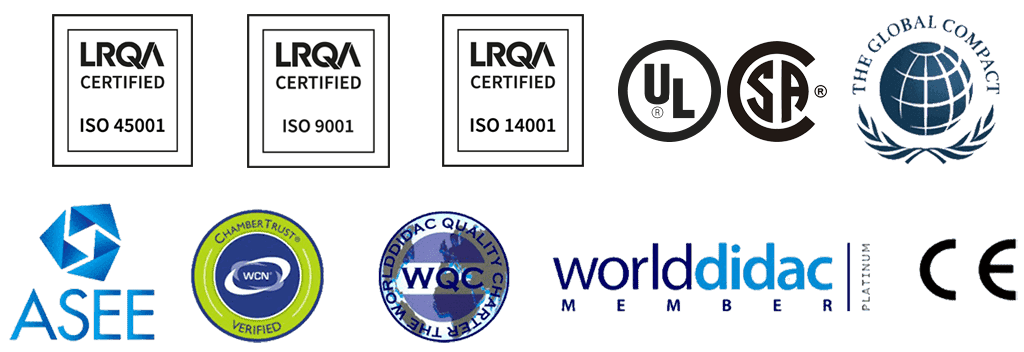
AFTER-SALES SERVICE

 Cookie preferences
Cookie preferences

